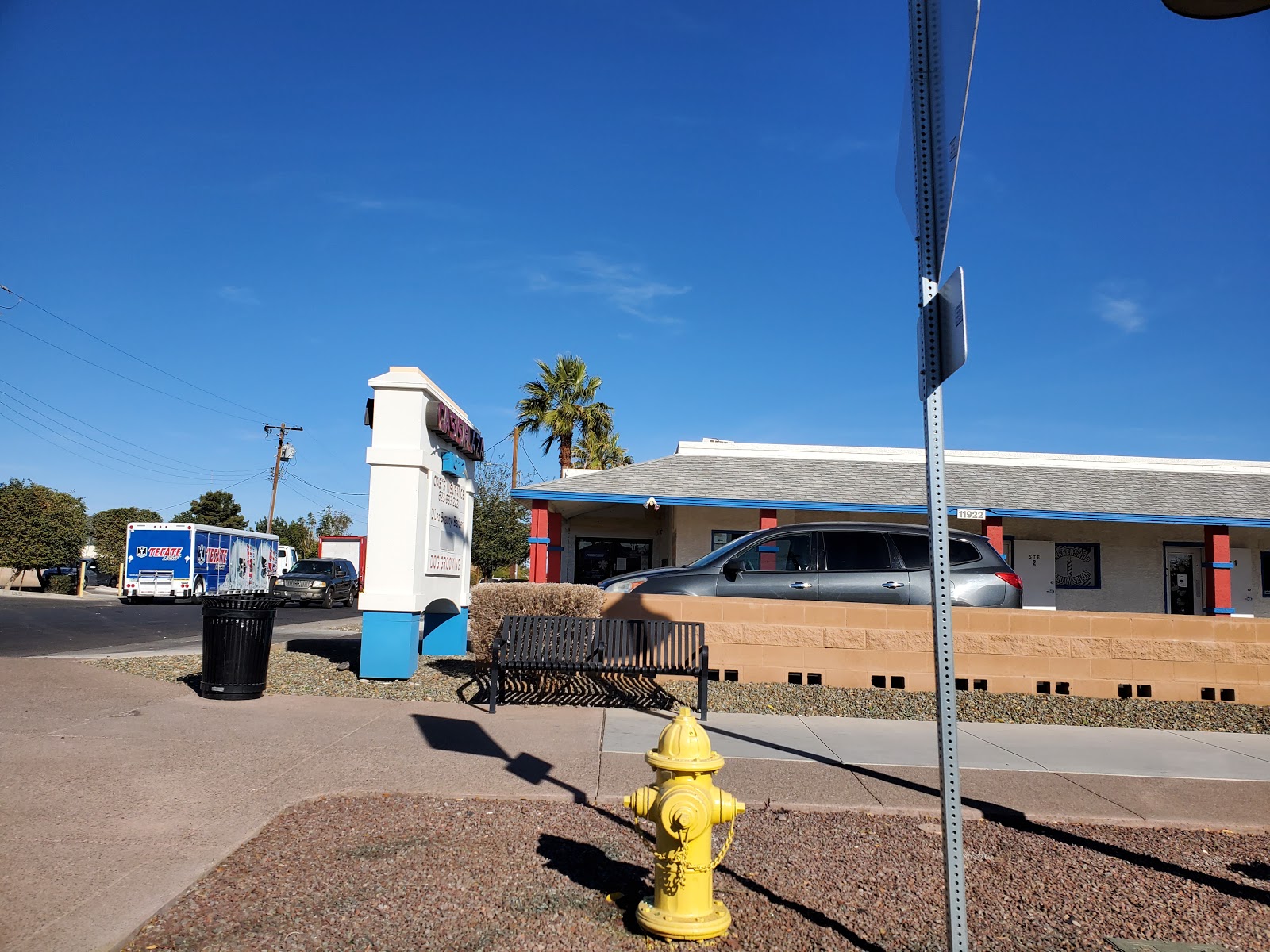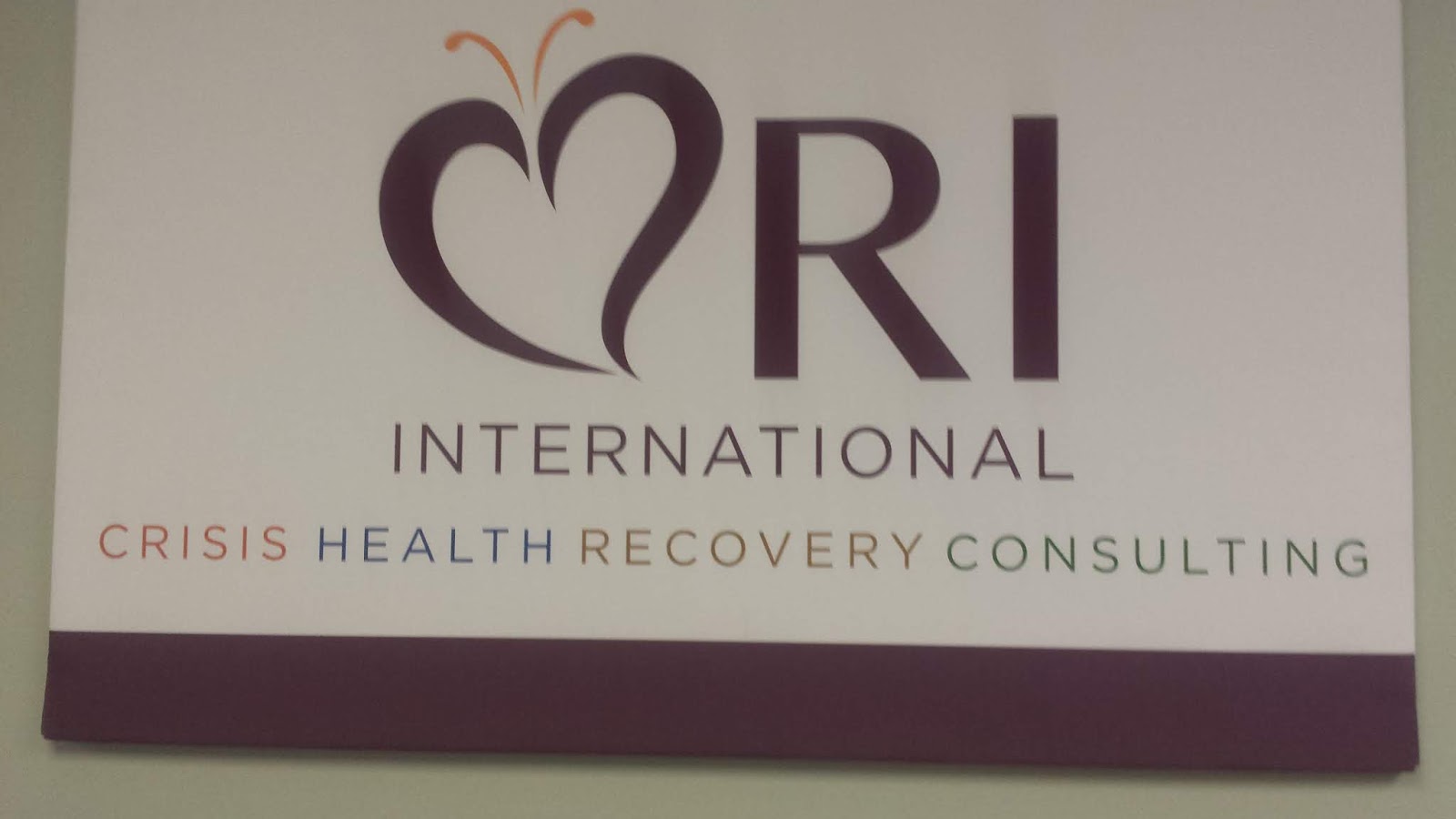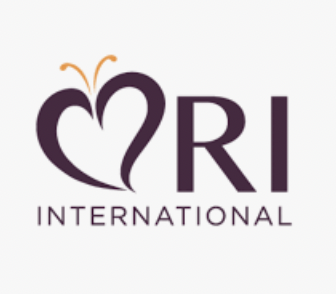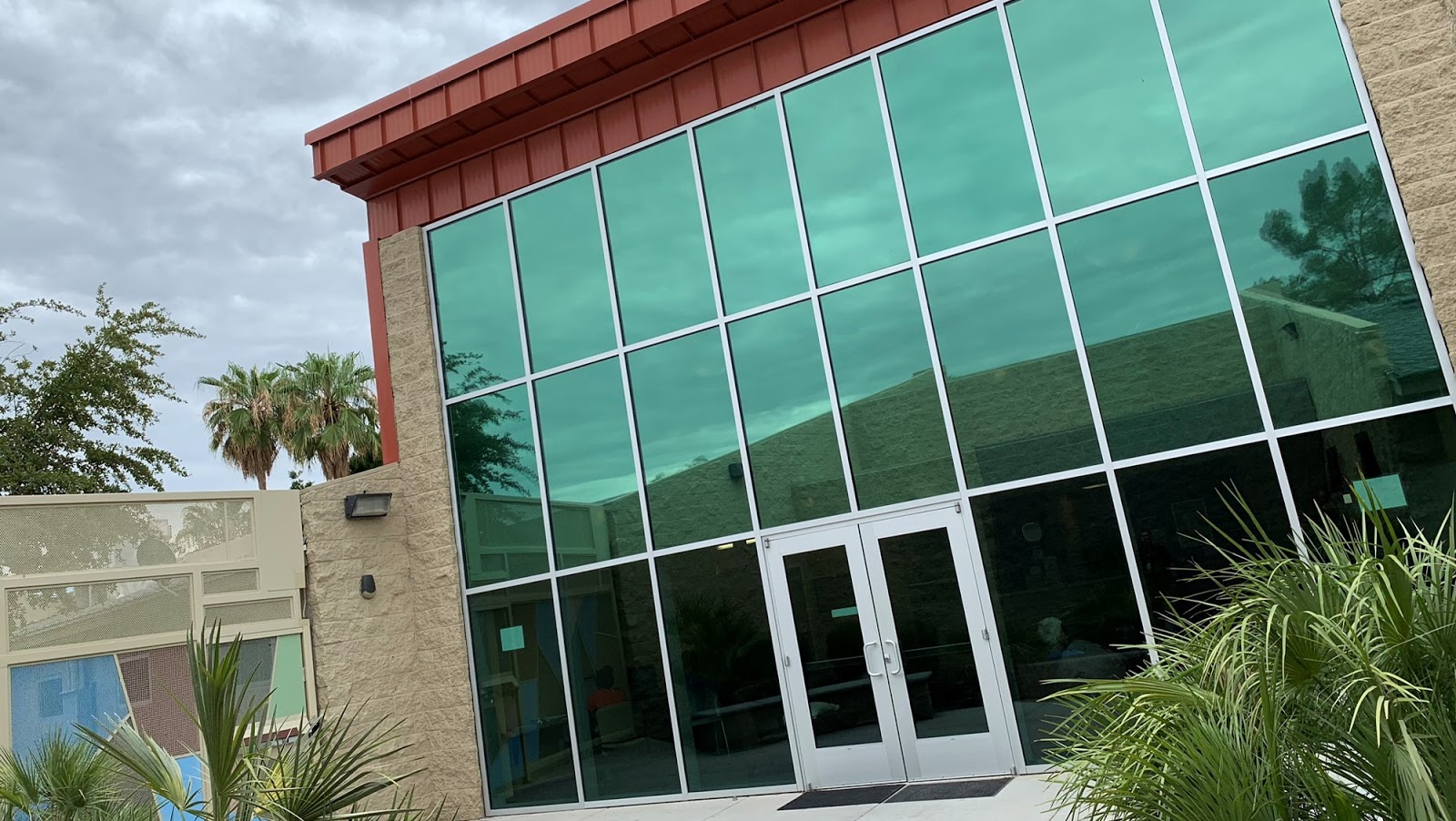Overview
In order to minimize the necessity for ER visits, RI International-Recovery Response Center in Peoria, Arizona, specializes in crisis stabilization treatments. Additionally, this facility provides a thorough outpatient program designed to assist both men and women in overcoming addiction and drug misuse. Therapy, peer support, and clinical treatments are all part of the rehabilitation programs, and they are all customized to each client's specific requirements.
Crisis Stabilization Services: Whether mandated by a court order or not, RI International's Recovery Response Center specializes in offering prompt crisis stabilization. In order to stabilize clients and prevent them from needing emergency department assistance, these programs are crucial for those going through severe mental health or drug use crises.
Outpatient Program (OP): RI International's Recovery Response Center offers an extensive examination and individualized treatment programs as part of its outpatient program. Using a mix of evidence-based treatments and supporting services, the program's main objective is to encourage long-term recovery and avoid relapse.
Therapy Services: Evidence-based techniques like Motivational Interviewing (MI) and Cognitive Behavioral Therapy (CBT) are used in both individual and group therapy sessions.
Peer Support: Groups that provide mutual encouragement and a shared experience are beneficial to clients.
Clinical Services: To guarantee all-encompassing treatment, thorough clinical examinations and continuing medical management are provided.
Vocational Training: Assisting clients in finding jobs and honing their vocational skills to help them on their road to recovery.
Activities for Socialization: Programs designed to help people integrate into the society and develop social skills.
Workshops and classes that educate clients on addiction, rehabilitation techniques, and mental health management are examples of educational programs.
therapy: To address the psychological and emotional components of rehabilitation, there are group and individual therapy sessions available.
The Special Approach of RI International: In the outpatient program, RI International applies its in-house developed RI rehab methodology. This paradigm highlights that everyone can recover from addiction and mental illness, regardless of their circumstances. Through the integration of education, counseling, peer support, vocational training, and socialization, RI International guarantees that every client has access to the resources and skills required for a successful recovery.
Dedication to Recovery: RI International is committed to the idea that everyone can experience recovery. This dedication is shown by the Recovery Response Center in Peoria, Arizona, which offers a controlled and encouraging atmosphere for clients to attain long-term sobriety and mental wellbeing.
Utilizing the Crisis Now treatment approach, which is renowned for its outstanding crisis stabilization techniques, is RI International's Recovery Response Center located in Peoria, Arizona. This method, which emphasizes trauma-informed care and a recovery-oriented emphasis, is intended to provide prompt and efficient treatment to those going through drug misuse crises.
Trauma-Informed Care: The facility places a high priority on understanding and resolving the effects of trauma on those in need of immediate drug misuse treatment. This method guarantees that the care provided is considerate of the requirements of those who have gone through trauma, creating a secure and encouraging atmosphere for healing.
Orientation toward Recovery: The foundation of all services offered is recovery. The facility is dedicated to assisting people in achieving both short-term stabilization and long-term healing. Developing individualized rehabilitation programs that take care of both urgent and continuing needs is part of this.
Peer Support Staff: A key component of the Crisis Now program is the use of peer support staff, who are people who have personally experienced addiction and recovery. The efficacy of crisis intervention and stabilization is increased by these staff members' special insights, empathy, and encouragement.
Cooperation with Law Enforcement and First Responders: To guarantee a smooth and effective crisis response, the Recovery Response Center works closely with law enforcement and first responder organizations. By lowering the need for ER visits and improving overall outcomes for those experiencing a crisis, our collaboration contributes to the prompt and coordinated delivery of treatment.
Superb Crisis Intervention: The facility is outfitted to provide top-notch crisis intervention services. This ensures that people get the assistance they need at the right time by ensuring quick evaluation, stabilization, and referral to the proper levels of care.
All-inclusive Care Method:
Emergency Substance Abuse Care: The hospital is prepared to manage substance abuse-related emergencies, offering prompt medical attention as well as psychological assistance to help those who are experiencing a crisis.
Integrated Support Services: To assist people in advancing their recovery process, the Recovery Response Center provides a variety of integrated support services in addition to crisis intervention. This covers outpatient therapy, follow-up care, and referrals to neighborhood services.
Dedication to Excellence: The Recovery Response Center of RI International is committed to provide the best possible treatment to those going through drug dependency crises. They guarantee that every client gets caring, trauma-informed therapy that is focused on long-term rehabilitation by using the Crisis Now treatment paradigm. The center's capacity to provide excellent crisis stabilization and intervention services is further enhanced by its cooperative efforts with first responders and the addition of peer support professionals.
RI International - Recovery Response Center at a Glance
Payment Options
- Medicaid
- Private health insurance
- Cash or self-payment
- State-financed health insurance plan other than Medicaid
- Federal military insurance (e.g., TRICARE)
Assessments
- Comprehensive mental health assessment
- Comprehensive substance use assessment
Age Groups
- Adults
- Young adults
Operation
- Private for-profit organization
Treatment At RI International - Recovery Response Center

Conditions Treated
Mental health treatment:
Mental health treatment provides a safe and structured environment where individuals can receive professional care and support for their mental health challenges. Within the facility, trained therapists, counselors, and medical staff work together to create personalized treatment plans tailored to each person's needs. Patients might participate in a variety of therapies, including individual counseling, group therapy, and possibly medication management. The goal is to equip individuals with the tools and strategies they need to cope with their conditions and lead fulfilling lives.
Alcoholism:
Alcohol addiction is a condition where a person's brain gets used to having alcohol, making it hard for them to control their drinking. This can lead to feeling down, acting without thinking, wanting alcohol strongly, and feeling sick if they don't drink. To help with this, treatment programs are available. These usually include a guided process to safely stop drinking, talking with professionals to work through problems, and joining support groups with others facing similar issues. While these treatments can't fully cure the addiction, they provide tools and support to help individuals live a better life and keep their drinking under control.
Opioid Addiction:
Opioid rehabilitation centers are dedicated to assisting individuals overcoming opioid dependence. They cater to those battling addiction from illicit opioids such as heroin, as well as those addicted to prescription medications like oxycodone. These facilities may provide a holistic approach that encompasses both physical care, which often involves medical detox and ongoing medical assistance (including medications), and psychological care through comprehensive therapy to tackle the root causes of addiction.
Substance use treatment:
Substance use rehabilitation embodies a holistic treatment approach crafted to assist individuals contending with drug or alcohol addiction. This all-encompassing rehabilitation strategy encompasses two crucial components: initially addressing the physical dependency, frequently commencing with detoxification, and subsequently confronting the psychological triggers through a diverse array of therapeutic methods. The overarching objective is to empower individuals to achieve and maintain sobriety while equipping them with essential skills and coping mechanisms for a successful reintegration into society and a life free from substance abuse.
Co-occurring Disorders:
Dual-diagnosis rehabs are usually the appropriate solution to treat co-occurring mental health and substance abuse disorders. These facilities typically employ medical and behavioral experts who use a range of interventions, together with the right healing environment, for you to achieve and sustain long-term recovery. Treatment usually includes evidence-based therapies (like cognitive behavioral therapy), recovery support meetings, 12-step facilitation, psychoeducation, skills training, and group therapy.

Levels Of Care
Detoxification:
Detoxification, often called detox, is like a reset button for the body after someone has been using drugs or alcohol. Its main job is to help people who want to quit these substances by easing the discomfort they might feel when they stop. Think of it as a way to clean out the harmful stuff in the body when someone has been using drugs or alcohol too much. Detoxification aims to make the process of quitting safer and less painful for the person.
Hospital inpatient treatment:
Residential treatment programs provide housing, meals, and substance abuse treatment, offering patients an environment dedicated entirely to their recovery, distinct from their everyday life. While some rehab facilities concentrate on short-term stays lasting a few days to a couple of weeks, others emphasize long-term care spanning several weeks to months. Many centers offer both, customizing the treatment based on each patient's unique needs.

Treatment Modalities
Group counseling:
Group Therapy is a therapeutic space where individuals battling addiction come together to share experiences, gain insights, and support one another on their journey to recovery. Facilitated by trained professionals, this setting fosters communal healing and empowers participants to overcome the challenges of addiction through collective strength and understanding.
Trauma-related counseling:
Trauma therapy addresses the deep-seated emotional and psychological wounds often linked with substance abuse disorders. Recognizing that traumatic experiences can be a root cause or a significant contributing factor to substance addiction, this therapeutic approach seeks to help individuals understand, process, and heal from their traumas. Doing so fosters emotional healing and bolsters the individual's chances of long-term recovery from addiction. Integrating trauma-informed care into addiction treatment ensures a comprehensive approach that addresses substance abuse's symptoms and underlying causes.
Individual psychotherapy:
Individual therapy, often referred to as psychotherapy or counseling, is a one-on-one therapeutic interaction between a trained therapist and a client. It provides a confidential space for individuals to explore their feelings, beliefs, and behaviors, working through challenging memories, experiences, or emotions. The therapist facilitates self-awareness, promotes personal growth and insight, and offers coping strategies to manage specific issues like stress, anxiety, depression, and other life challenges. The ultimate goal is to improve the individual's mental well-being and enhance their overall quality of life.
Ancillary Services
Languages
- Sign language services for the deaf and hard of hearing
Special Programs
- Clients who have experienced trauma

Additional Locations
Contact Information
DISCLAIMER: The facility name, logo and brand are the property and registered trademarks of RI International - Recovery Response Center, and are being used for identification and informational purposes only. Use of these names, logos and brands shall not imply endorsement. BetterAddictionCare.com is not affiliated with or sponsored by RI International - Recovery Response Center.





